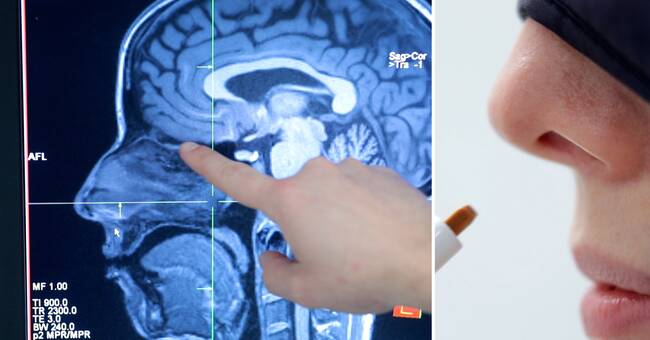20 people are included in the study, of which ten tested positive for covid-19.
With the help of brain images from before and after the infection, it is hoped to find out more about how the coronavirus affects odor and taste changes.
It is not known how many have been affected in Sweden because the diagnoses are not made in inpatient care.
- We believe that about 50-70 percent of those who have had covid-19 get some form of odor problem.
With the estimate that half a million Swedes have confirmed covid-19, a significant proportion will have permanent problems, says Johan Lundström, odor researcher and senior lecturer in clinical neuroscience at Karolinska Institutet.
- It is more common for younger women to suffer from odor problems as a result of covid-19.
Limited knowledge and some research today
Knowledge of the phenomenon is limited, as relatively little research is conducted on the sense of smell.
It is common for patients to first suffer from anosmia, lack of odor.
After that, many suffer from parosmia, a change in the sense of smell.
Otherwise pleasant smells instead smell chemical, rotten, gasoline or even feces.
- Covid-19 destroys the support cells on the olfactory sensory receptors.
Via olfactory nerves, we believe that the virus settles on the part of the olfactory brain called the olfactory bulb.
Affects eating habits and weight
Disturbed taste and smell affect us negatively in everyday life.
A distorted sense of smell and taste can steer our eating habits in the wrong direction
- Initially you can lose a lot of weight, but over time you try to compensate with other sensations when we lose the smell.
You eat more sugar and more fatty foods, says Johan Lundström.
Increased risk of depression
Permanent anosmia and parosmia can also increase the risk of depression, according to Johan Lundström.
- We do not know exactly what it is due to.
But one theory is that it is the same parts of the brain that process odors that are seen to be affected by depression.
Important with early odor training
The prognosis for the large number affected by parosmia and anosmia may seem bleak.
But there is a method, odor training, that can help the brain practice the sense of smell.
Like other brain injuries, it is important to get started with that exercise as soon as possible.
- You can see the brain as a muscle.
If you train the muscle, the muscle becomes larger.
On the other hand, at present you can not expect much if you seek care for impaired or distorted olfactory ability, says Johan Lundström.

